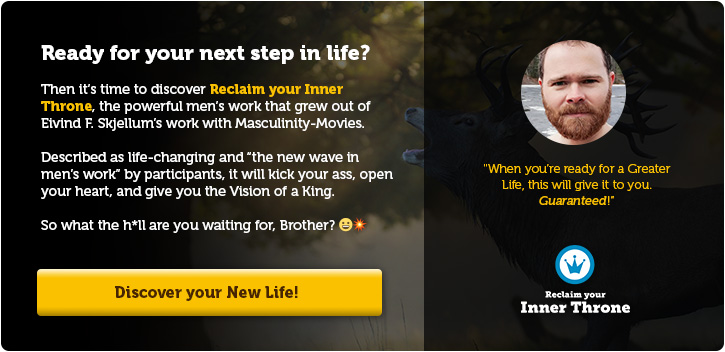Departures (2008)
Synopsis
Departures is an award-winning Japanese drama which tells the story of Daigo Kobayashi’s journey from life as cellist in a Tokyo-based symphonic orchestra to life preparing dead bodies for their final parting in his home town Sakata. It is a movie about the big questions: life, death and relationships. A wise and beautiful movie, Departures gently invites us to embrace death as natural and to recognize that a life well lived is a life well died.

| Genre | Drama |
| Production year | 2008 |
| Director | Yôjirô Takita |
| Male actors | Masahiro Motoki, Tsutomu Yamazaki |
To live well, you must die well
by Eivind Figenschau Skjellum
Daigo Kobayashi lives with his wife Mika in Tokyo. He plays the cello in a struggling symphonic orchestra. As the movie opens, the orchestra where he plays for a living is disbanded by the owner. Daigo’s dreams are crushed. He was going to be a famous musician and the concert halls of the world were going to be the stage of his life and his marriage with Mika. Those temples of high culture seem far away now.
A new job
Daigo’s mother is dead. His father is gone, having run off with a waitress when Daigo was but a child. He is for all intents and purposes an orphan and his childhood home in Sakata northwest of Tokyo stands abandoned. It is a quaint house, surrounded by cherry trees, perched on a piece of land above a babbling stream. His mother lived alone there after Daigo moved out. The house was his only inheritance when she died two years previously.
Daigo sells his expensive cello to stabilize their finances for the next leg of their journey – a new life in his childhood home – and feels relief as he does it. Maybe the dream he had pursued wasn’t really his dream after all, he tells us in a monologue. This is a pivotal moment in his life, and he rightly recognizes it as such.
When a man finds himself stuck in a dead-end life, he is wasting his birthright. We are put here on this planet, I believe, to find our true gift and courageously give that to the world. Every man yearns deep down to leave a mark. I think I know that much about you, brother! I don’t think the gift that will leave that mark necessarily needs to be our livelihood though.
But if our work is draining us of energy and makes us daydream of a life that isn’t ours, we should course-correct. Many men reach that point of recognition, but few are those who act. For stepping into that unknown is a scary thing, especially if he is the main breadwinner of the family (in certain conditions, it would even be irresponsible).
Men have always, it seems, sacrificed their inner yearning for depth, vitality and meaning in favor of a stable job that puts food on the table. But hearts of men close when their life experience turns certain, controlled, measured. So how do we make a living and live with open, beating, passionate hearts? Many, if not all, men will struggle with this question in their lifetime (I do – and I haven’t even started a family!). And finding a satisfying answer is always a process of risk and challenge.
Daigo is lucky in a way – fate intervenes and forces him into a time of transformation. It is as if the universe conspires to give him what he needs to find a truer path, when he himself has neglected the seeking (note that he only realizes after selling the cello that he was chasing the wrong dream). This process, when it arises in our lives, often signals an entry into the sacred time of the Magician Archetype. If we resist, we will suffer. But if we embrace the mystery of life’s unfolding and learn to die while we still live, we will be in for a ride that will almost certainly change our lives for the better.
A hieroglyphic job ad about “departures” takes Daigo to a red house on a hill where large wood coffins line the back wall of the front office. NK Agent is a company which has made dead people its business. The owner Sasaki prepares them beautifully and gracefully for their final journey as if he were an artist. Through his work, the bereaved uncover deep and forgotten feelings of grief, love and joy. This is the gentle and beautiful ritual of departure that has become his craft. And since business is reasonably good, he needs a right hand man.
Death as a doorway to feeling
When the story plays out, Daigo’s new boss has been widowed for nine years. When his wife died, he prepared her body and sent her off. When he shares this story with Daigo amongst the thick foliage of his upstairs living quarters, we understand there was a profound depth of love and feeling between the two. I’m reminded of the universal rule that suggests that our true gifts to the world shall emerge through our wounds. Sasaki has embraced his loss and transmuted the grief into a gift he can pass on to others.
Daigo’s first days on the job serve as a baptism by fire and he learns soon enough that dead people smell. He is challenged beyond his comfort zone, but something remarkable starts happening to him: He realizes, as if it were a surprise, that he is surrounded by death. When Mika brings home a dead bird one day, he feels ill. A wave of emotion takes him as he appears to tune in, perhaps for the first time in his life, to the frailty and preciousness of life. Perhaps he sees that we are all so fragile, so beautiful in our infinite vulnerability. He embraces his wife and starts kissing her with tender passion.
Later that night, he pulls out his old childhood cello, with which he performed for his parents in his early years. As he plays, memories of his father, whose face he cannot even remember, pour in. He remembers that they gave each other a “rock letter” by the riverside. A rock letter, his father taught him, was a way of communication used before words emerged. It would tell the recipient something about the mood of the sender based on its weight, shape and surface. He remembers that he gave his father a small, smooth stone back then. In return, his father gave him a rough and heavy rock.
Something in Daigo is coming out of hibernation. His naïveté is starting to give way to a deeper feeling landscape.
Standing tall in the face of challenge
Death is a taboo subject in Japan, so much so that the director allegedly feared for how the movie would be received upon its release. So when the people in his life discover what he does for a living, they react with disgust. His wife even screams at him that he is “unclean” before she leaves him and travels back to Tokyo. But Daigo has found a calling now; he has seen how Sasaki’s work heals the wounds of the bereaved and brings more love into the world. He has seen the grace with which he carries out the ritual. He has learned that there is beauty to be found even in death. He describes it with these words in one scene:
One grown cold
restored to beauty for all eternity
this was done with a calmness, a precision
and above all a gentle affection.
At the final parting
sending the dead on their way
everything done peacefully and beautifully.
Daigo is alone now. He only has his work, his boss and the office lady. Surrounded by people who are mortified by the concept of death, he finds himself in a form of purgatory. “Demons are eating his flesh” yet he presses on. His heart is in his work now. That is all he needs in order to endure.
Our twisted relationship to death
The way we relate to death in the world today is very unnatural. I know that to be true for the Western world. This movie tells me that it is true for the Eastern as well. Losing touch with the wisdom and gratitude inherent in contemplating our deaths has a huge cost: We forget that we are finite, here for but a short time. And with the arrogance inherent in forgetting our finitude, we lose the basic humility and gratitude required for living a fulfilling life on this splendid, little rock.
But what can a normal man do when there is such pressure on him to be happy-go-lucky, to shit diamonds for breakfast and manifest heavenly mansions out of thin air for dinner? All while smiling, laughing, beaming success and having not a worry in the world. Well, he must become a courageous man. Because it takes great courage to shed the facade and allow the grief and wildness that is inherent in the depths of us to emerge in an authentic way in his daily life. The mature man has access to his feeling body and there is so much repressed feeling in today’s society.
For a world entranced by trends, fashions, and reality TV, the “wild man love” that is lived openly in the truly courageous man looks way too much like the heavy dark of death and strange, hairy creatures that live under the ground. Who wants to get soil stuck under their finger nails when they can get the latest in manicures on special offer down the road and look splendid to their friends?
But lest we embrace that life is a series of deaths and understand that the key to living well is dying well, we will never be truly happy. Consumerist culture is an empty promise. It delivers only fleeting moments of joy in an ocean of half-life. Most of us feel hollow and miserable. And who are we kidding anyway? In the depth of our hearts and souls, we know the truth: Something is seriously wrong about our culture.
Letting go at the deathbed of his father
One day, a telegram arrives at Daigo’s door. His father has died. Daigo’s trials have all been presented him, it may seem, to prepare him for the most pivotal of them all – letting his father back into his heart. Ever since he ran off, Daigo has carried fierce resentment against him. He is now committed to not forgive. Fortunately, his wife is now back in his life, thanks to the beautiful ritual he performed for the sweet woman who ran the local bath. Mika has seen first-hand the beauty inherent in a graceful departure and with Mika back, Daigo has passed the test: He has remained true to his heart.
He finds himself at his father’s side somewhat reluctantly. His heart is closed – who is this sad, lonely man who lies on the floor before him? He doesn’t even recognize him! Then he starts carrying out the ritual of departure. As he works on the hands, stiff and cold with rigor mortis, something falls to the floor. It is the rock he gave his dad when he was little.
Daigo’s feeling body comes online like a great wave. His father’s last thought was of him. His father must have loved him! But life happened and feelings of shame and regret came between them. In that very moment, I know that a huge reservoir of feeling and power that was previously inaccessible to Daigo opens up. As he washes his dad, tears stream down his face.
He forgives – and he loves. This is a good moment to remember that it is impossible for any man to stand up fully in his own power and beauty without finding peace in the part of his heart that holds the imprints of Dad. Daigo holds up the rock to the pregnant belly of his wife Mika as they smile to each other. Something is healed there – in the midst of the circle of life.
Conclusion
Departures is a wise and beautiful movie about life’s big questions. It is a movie about art: Music connects all cultures in a way similar to death and Daigo could take to the art of departure more easily because he was a musician. It is also a movie about mentorship: Sasaki opens Daigo’s heart and helps him reconnect with his own core truth in a way that empowers him to find his calling and forgive his dad.
But most of all, it is a movie about life. It reminds us gently of the invisible cords that connect us, of the petty little things that keep us apart, of the vulnerability of life and humankind, and of the healing, life-giving power of true grief. In that, I sense that it beckons us to get more intimate with each other, to go beyond fear and judgments in order to heed the eternal call of the Lover archetype: Love one another today. Tomorrow may never come.
Powerful ideas from Departures
- Embracing death is enormously life-affirming. For a life well lived is a continuous process of little deaths. Learning to die while I still live is the key which will unlock the door to true beauty and joy.
- When we are wounded by life, there is enormous healing and power in transmuting the wound into gifts that we offer the world.
- Life sometimes presents us with crisis. We can fight it or we can embrace it. And if we do, we may find that crisis is the way the universe stays committed to our life and greatness when we ourselves don't.
- A father loves his son, even when his behavior suggests otherwise.
- A son must find it in himself to forgive his father at one point in his adult life, lest a part of him stays forever closed.
- Love today. Death may come before you plan and all that will remain is memories and regret for those words which were not expressed.







